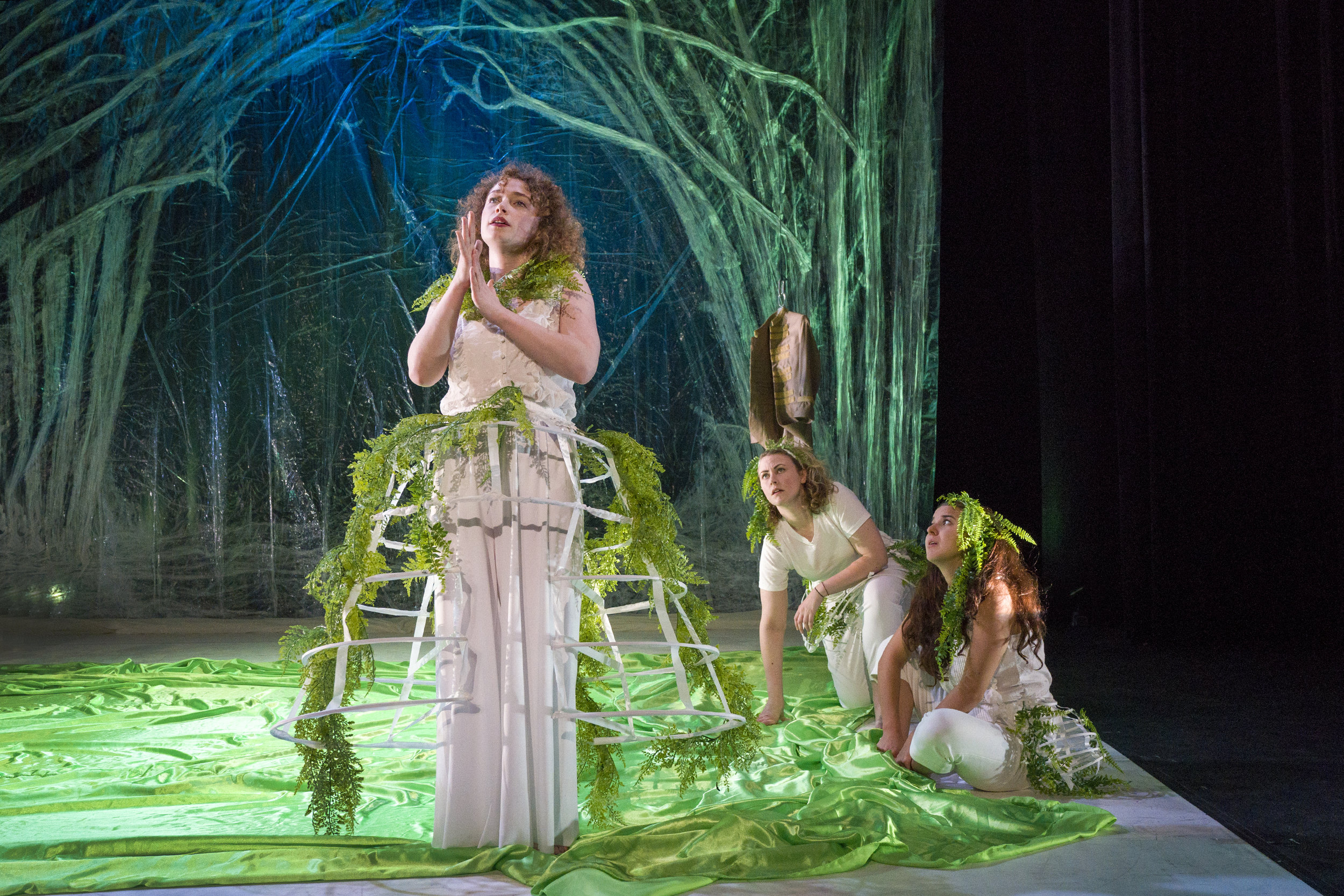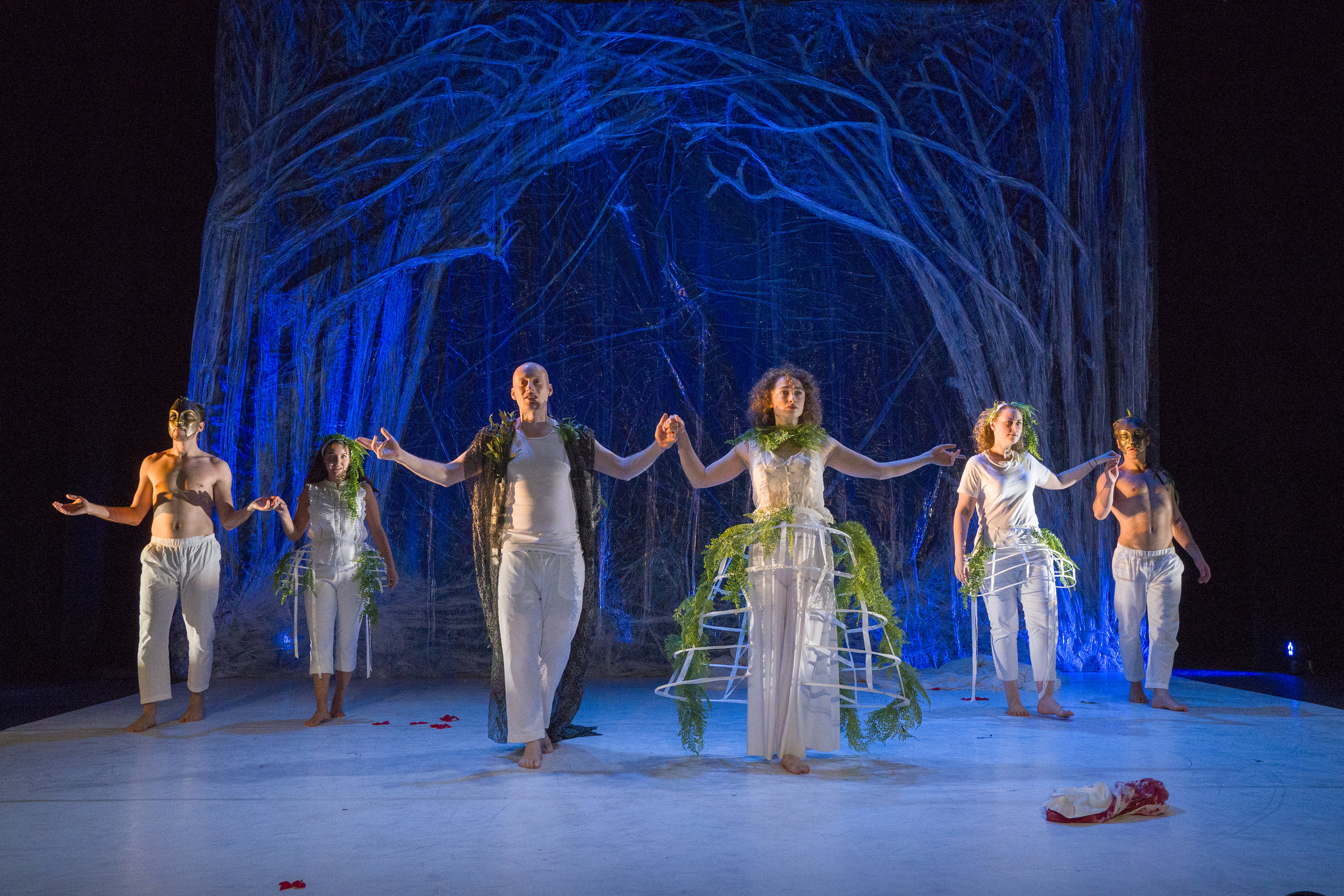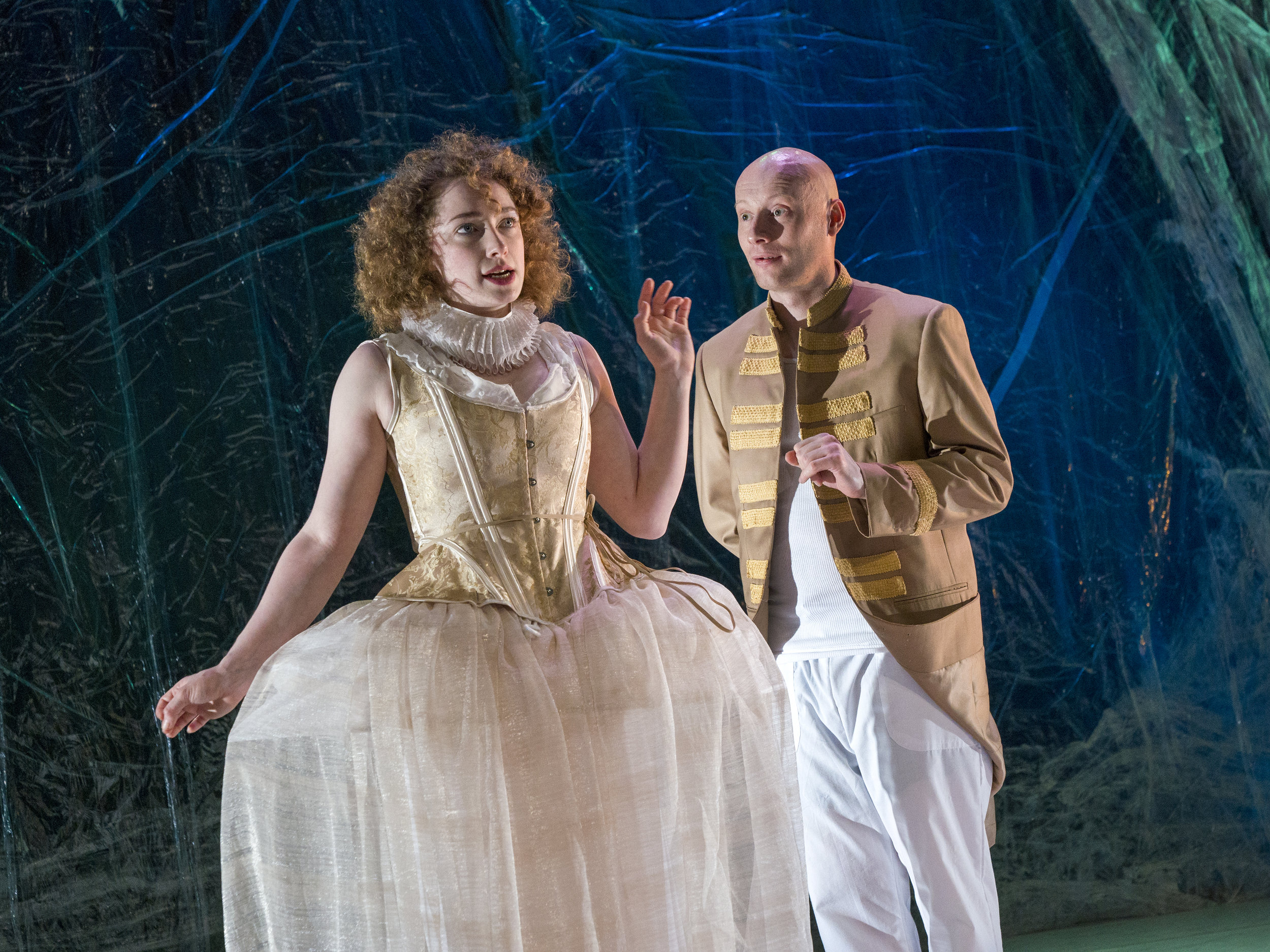Four Lovers. Two Fairies. One Donkey and a lot of mayhem ensue. A Midsummer Night’s Dream is William Shakespeare’s outlandish romantic comedy, brought to the stage by Aquila Theatre Company.
In A Midsummer Night's Dream, residents of Athens mix with fairies from a local forest, with comic results. In the city Theseus, Duke of Athens, is to marry Hippolyta, queen of the Amazons. Bottom the weaver and his friends rehearse in the woods a play they hope to stage for the wedding celebrations.
Four young Athenians are in a romantic tangle. Lysander and Demetrius love Hermia; she loves Lysander and her friend Helena loves Demetrius. Hermia’s father, Egeus, commands his daughter to marry Demetrius, and Theseus supports the father’s right to do so.
All four young Athenians end up in the woods, where Robin Goodfellow, who serves the fairy king Oberon, puts flower juice on the eyes of Lysander and Demetrius, unintentionally causing both to love Helena. Oberon, who is quarreling with his wife, Titania, uses the flower juice on her eyes. She falls in love with Bottom, who now, thanks to Robin Goodfellow, wears a donkey's head.
As the lovers sleep, Robin Goodfellow restores Lysander's love for Hermia, so that now each young woman is matched with the man she loves. Oberon disenchants Titania and removes Bottom’s donkey’s head. The two young couples join the royal couple in getting married, and Bottom rejoins his friends to perform the play.
Q&A WITH Actors JACK KLAFF & ROBERT MADELEY
1. What inspired this reinterpretation of Shakespeare’s classical work?
This production was inspired by the theme of female empowerment and how that has played out throughout the ages. All of the women within this power struggle are fighting against instruments of male power that are being forced upon them. These themes have never been more relevant in the current age with the MeToo and TimesUp movements attempting to highlight power imbalances in the modern world. -Robert
2. Who and/or what ignited your passion for classical drama?
My family initially. My mother was taught Shakespeare and verse drama by a brilliant teacher who understood the traditions of classical plays going back via the 19th century and on through ancient times. One very special day my older brother was given a speech to learn for school. I was just a little boy listening to him as he practiced the rhetorical flourishes in that speech. My mother explained the text to him and helped him rehearse the speech. And I just found it tremendously exciting. Not exciting in an academic way. Exciting like rock music is exciting. -Jack
3. Was it difficult to stay true to Shakespeare’s original piece while looking at the story through a modern lens?
No. One of the reasons why Shakespeare will always remain relevant is that he is the most human of all the great writers. Human beings are still, and will always be, motivated by the same things that Shakespeare wrote about. The date may have changed but human beings really haven't. Shakespeare writes so vividly about power, greed, love, corruption, jealousy and mortality. All of the things that really matter to people and that always will matter to people. -Robert
4. Who were some of your favorite characters to bring to life from the original play and why?
Theseus. How Theseus exists in the history books and mythology is very mysterious. In the play he a fearsome warrior who conquered the Amazonians, but he is also given the language of a lover and a poet. Creating a character that is true to these things, while still being interesting to an audience, was a great challenge. -Robert
5. Pick 5 words—that start with the letter ‘M’—that best describe tonight’s performance.
Magical, Musical, Mesmerizing, Masterly and Madcap
6. How do you bring the mystical story to life on stage with the many overlapping scenes that take place in the play?
Each member of the acting company along with the lighting designer and designer of the soundscape will work through the play moment to moment, line by line, interchange by interchange, passage by passage and scene by scene. Ours is a collaborative process. There really are no rules, nor is there clear process to begin with. We draw on experiences of past productions of other plays as well as productions of this play and in the long and laborious process we arrive at what it means to us. As a great Spanish poet once said, “There is no path, we make the path by walking.” -Jack
7. What is the overarching message in A Midsummer Night’s Dream; and how does that connect to our modern world?
A famous Nobel prize- winning physicist was once asked to explain his work. He said, ‘If I could explain my work briefly and simply, I’d never have won the Nobel Prize.”
Perhaps naming a message is necessary for some kinds of education. That’s not a question for me though - I prefer talking about inspiration.
A friend of mine, a writer, insists that no poem or play of his should ever be used for examination purposes at any institution. -Jack
8. What do you hope the audience takes away from the performance?
I would beg our audiences to make of it what they will - to take what they wish, what it is their will to take from this production.
The play is a comedy. It gets laughs. As far as Shakespeare concerned in a comedy, lovers are reconciled and couples get married. In his tragedies a lot of people die. The play is a celebration. A celebration of many things. It is a celebration of Summer and Midsummer. It is funny. It is a celebration of fun and of laughter. -Jack
9. What advice would you give to any aspiring performers in the audience?
It is not enough just to WANT to become a professional. -Jack






